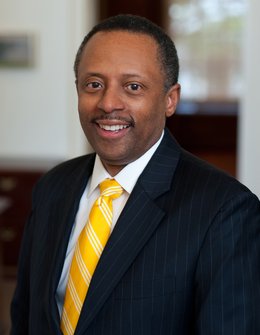 Funders Who Value Diversity, Use This Resource
Funders Who Value Diversity, Use This Resource
by Earl Lewis, president of The Andrew W. Mellon Foundation
In the last 50 years, we as a nation have seen profound changes, marked by considerable advances in opportunities for women and people of color who experience systematic exclusion. Progress is seldom linear, however; as a result, those same advances, underscored by the election of Barack Obama as President of the United States, also produced mounting anxieties, heightened xenophobia, notable religious intolerance, and rank racism. Despite the challenges we have faced, however, we can see clearly the strength and opportunity increased diversity provides to us.
As we approach the end of a year that has rivaled 1968 for escalating tension over race, civil rights and politics, and prepare for a new administration, it is critically important the philanthropic community engages in a deliberate dialogue on diversity, and the role it plays in shaping American society.
In September, in partnership with the Princeton University Press, The Andrew W. Mellon Foundation published Our Compelling Interests: The Value of Diversity for Democracy and a Prosperous Society, the inaugural edition of a years-long series of books offering a cross-disciplinary investigation of opportunity and disparity in a swiftly diversifying America.
This landmark essay collection begins with a powerful introduction laying out the importance of defining, leveraging and valuing diversity in all forms for the benefit of a prosperous democracy. It contains a key essay on projected changes in the demographic composition of the nation in the coming decades. The volume explores the paradoxes of diversity and inequality in the 50 years following the civil rights legislation of the 1960s, and reviews the ideals that have governed our thinking about diversity — such as assimilation, integration and diversity — before delving into the new ideal of social connectedness. The book also examines the demographics of the American labor force and its implications for college enrollment, graduation, the ability to secure a job, business outcomes and the economy.
Already the book is bringing together some of the country’s foremost thought leaders on race, diversity, law, culture and sociology in productive, meaningful discussion. But without a concerted effort by the philanthropic community to continue to develop this conversation, I fear leaders and policymakers may retreat to old beliefs, and our present and future generations will be deprived of the opportunities and shared prosperity this moment has put on offer.
As the defenders of the humanities and its role in creating a more thoughtful, inclusive society, it is the philanthropic community’s duty to consider and emphasize the value of engaging chronically underrepresented communities in an effort to promote positive change.
Philanthropy can play, as it has many times in the past, an important role in establishing a tone and a framework for creative solutions to grand challenges. I invite the philanthropic community to use this series as a resource for intellectual discussion about the role diversity plays in shaping democracies and to offer workshops and discussions about building bridges across diverse identities, as presented in Our Compelling Interests.
At Mellon, our fundamental goal is to work in concert with others in the philanthropic ecosystem to encourage positive, meaningful change. Today, that means helping to promote the value of diversity for a more thoughtful, positive future. We are uniquely positioned to encourage inclusivity and sustainability in the arts and humanities disciplines, and the publication of Our Compelling Interests can and should serve as a strong foundation for a meaningful and timely conversation about the value of diversity.
